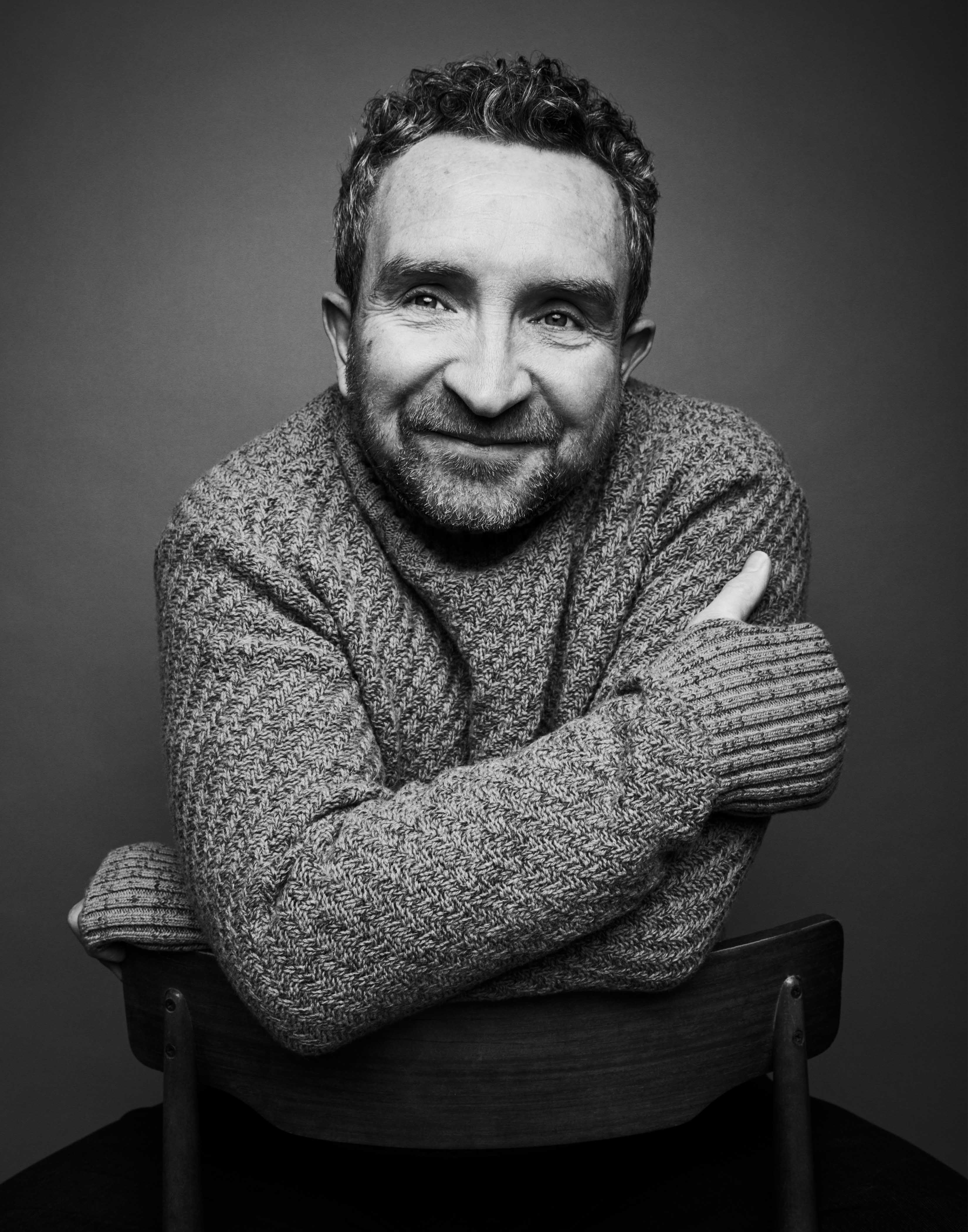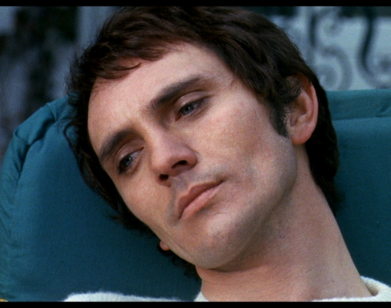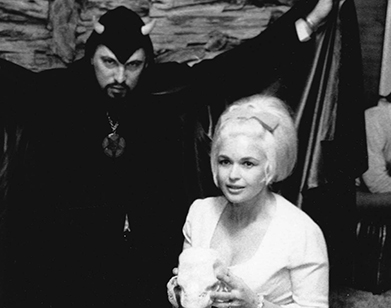Why character actor Eddie Marsan always plays the villain
You know his face. Over the last 20 years, the British character actor Eddie Marsan has distinguished himself by playing complex villains and characters teeming with thoughts, who don’t—or can’t—articulate their ideas. He’s the rare actor who creates characters you can feel for, even if they’re terrifying. His unforgettable turn as Scott, a volatile driving teacher in Mike Leigh’s Happy-Go-Lucky [2008], who coaches his cheerful student, Poppy, to turn corners “expecting the worst” is both hilarious and powerful. He’s brought nuance and pathos to Reg, a solitary laborer, in Leigh’s Vera Drake [2004]; John May, a civil servant who arranges funerals for people who have died alone in Still Life [2013]; Reverend John, who counsels Benicio del Toro’s born-again Christian ex-convict in 21 Grams [2003]; and Terry Donovan, the brother of the main character on the current Showtime crime drama Ray Donovan. This spring, he stars in 7 Days in Entebbe as then-Israeli defense minister Shimon Peres, and he’s part of the highly-anticipated superhero action-comedy Deadpool 2.
The 49-year-old actor was raised in Bethnal Green, a working-class neighborhood in London’s East End. Today, he has a wife, four kids, and a prolific career with more than 100 film and television credits, but he’s had an unusual journey to the spotlight. He left school at age 15 “with no qualifications,” working as an apprentice printer before studying acting. As Marsan tells it, he himself used to suffer from inchoate feelings and desires as a young man.
“I remember the first time anybody ever explained to me the idea of paradox,” he says, on the phone from London. Even though he’s 5 foot 8, he was “one of those guys who wanted to take on the world and fight everybody.” But when a friend of his explained the word, Marsan says, “Suddenly, I didn’t want to fight anybody anymore. I remember relaxing. These thoughts existed in my head but nobody helped me to define them—because if you define thoughts, then you’re not subject to them.”
Though he doesn’t say so exactly, Marsan’s acute ability to plumb the psyche of his characters is one he developed through humility. “I think one of the reasons I was unemployed for the first couple of years was that I had a terrible chip on my shoulder,” he muses. “I used to have this working-class hero mentality: ‘I don’t need to know all of this academic stuff.’ Then one day I realized that I was just unemployed. I was a waiter more than an actor, and I was always the most ignorant person in that rehearsal room. So the next time I went in, I just asked people questions. People who had more of an intellectual background gave me language and the reference points to become more self-aware.”
Music is often one of the “technical” tools Marsan uses as a way of finding the tempo of a given character. Happy-Go-Lucky’s gloomy, easily enraged Scott listens to Depeche Mode; Terry, the inarticulate former boxer on Ray Donovan is a “Bruce Springsteen guy”; and the reclusive Norrell on the 19th-century-period BBC show Jonathan Strange & Mr. Norrell finds solace in baroque classical music. People are influenced subconsciously by the rhythm of the music of the times in which they were raised, Marsan thinks, so if you’re playing someone from a different age, you need to condition yourself accordingly. It’s the kind of insight that hints at the probing nature of his mind. “I have this incredible need to understand things,” Marsan says. “It comes from a feeling of anxiety, I think.”
JULIA YEPES: Can you tell me a little bit about the person you worked for who encouraged you to pursue acting?
EDDIE MARSAN: My parents divorced when I was about 12, 13, but it was a very messy divorce. It went on for many years. I left school at 15 with no qualifications. When I was 16, I became a born-again Christian. I think, in hindsight, I was lost. But I became really fundamentalist for a period of 7 or 8 months, to the point where I thought I couldn’t masturbate, if I opened the fridge door I would wait for God to tell me what to eat … [laughs]. And then, funny enough, we were going on this mission, and I remember falling asleep in a van. I woke up and I heard them saying, “Next week we’re going to Leicester Square to save homosexuals.” You know when you wake up and you have a spontaneous thought? My spontaneous thought was, “Well, why do they need to be saved?” I remember thinking, “This is crazy.” Then I began to step out of it. Since then I’ve always had an aversion to anybody who’s dogmatic, anybody who’s an idealist or idealogue, or anybody who fervently believes in something to the point where they exclude any other option. I always find that frightening to be around.
After I left school, I became an apprentice printer, but while I was doing that, I used to work for a bookmaker. When I finished my apprenticeship, he said, “What do you want to do?” I used to dance a lot, and someone had asked me to be extra in a movie, and I realized that I wanted to be an actor, so I said that.
He and my mom got together and they raised the money for me to go to drama school. I auditioned for every drama school in London and every one turned me down. Then I tried the next year and they turned me down. And then one of them offered me an evening course. And I did the evening course. From the evening course, I went on to do another course. And then I became an actor.
My friend, his name was Mr. Bennett. I remember I was making a film with Ethan Hawke in Nova Scotia, and Mr. Bennett died, and Ethan saw me crying and he kind of took me to one end of the boat, and just stood there. Didn’t say anything. Just stood there with me while I cried because this man was like my dad. I’d seen him two weeks before and I said goodbye and I told him how much I loved him, and then I learned he died when I was on the ship. And Ethan kept everybody else away from me. He just stood with me, which was a lovely thing to do, actually.
YEPES: That’s an incredible story. So what kind of dancing did you do?
MARSAN: I used to love James Brown and what you’d call ’60s R&B, Northern Soul. I grew up in a very black neighborhood, so most of my friends are black. And I could dance. So we used to go dancing all the time.
YEPES: You’ve said that as an actor, you start with what a character is thinking, and then build the characterization from there. Who do you think Shimon Peres was at the time of his life that’s portrayed in the movie?
MARSAN: The Shimon Peres I was playing in 7 Days in Entebbe wasn’t the Shimon Peres of the 1990s and the man who received the Nobel Peace Prize. What I did was look at David Ben-Gurion and the team that he assembled in the creation of Israel. And actually, Shimon Peres was the only person on his team who wasn’t a soldier. He was a politician. So everything he does is from a political standpoint, rather than a military standpoint. That includes—this is me imposing my own thoughts on Peres—a certain kind of low self-esteem and a feeling of physical inferiority, but an analytical superiority and idealism that soldiers who are exhausted by war don’t have.
I also felt that he was trying to prove a point. He was a man who was dedicated to the creation of the state of Israel and he realized there was a certain price that the Jewish people of Israel had to pay. Part of that was deaths by terrorist attacks. He thought that you can’t avoid that. So that’s what I played when I played the part. Although some people said that they thought I was like a Bond villain—I didn’t mean to be like a Bond villain! [laughs] I just tried to play this man who was thinking in these political terms, really. And he’s idealistic.
YEPES: It also seemed like he enjoyed his power a little bit.
MARSAN: Yeah, I think so. Jose said he wanted the film to be an answer against populism. Populism always demands simple answers—it always demands heroes and villains.
The film is about is people having to make decisions. When reality hits you in the face, you have to make a choice. And that’s what I think the world is going through at the moment with Trump and with Brexit. It’s people retreating from reality. They want simple answers. They want someone to blame, so therefore they don’t want to deal with the complexity of the reality.
YEPES: When Mike Leigh is making a film, I know that the actors spend several months improvising before the shoot. Did he come to you with the scenario that your character, Scott, would be a driving instructor and Sally Hawkins would be the pupil?
MARSAN: No. What would happen is he would say to me the year before the shoot, “I’m going to do this movie. I want you to start looking at conspiracy theories. Go away for a couple months, look at them, and then come back and see me.” And then we’d create the basic essence, the fundamentals of this character of the conspiracy theorist. After first three or four months, we decided he was a driving instructor, so I would sit in with driving instructors while they would give their lessons and I would learn all the techniques.
I thought my character was kind of like Travis Bickle in Taxi Driver [1976]. I remember thinking, “I’m gonna kill someone.” David Thewlis is a friend of mine, and I remember Mike saying, “Don’t watch Naked [1993] while you’re making this movie” because I had thought, “This is my David Thewlis moment.” Then one day he said, “I’m going to give you this name and this address. You’re going to go to this house and pick up this woman and you’re going to give her a driving lesson.” Then Sally came out of the house as Poppy, and I suddenly realized that I wasn’t in Taxi Driver or Naked, I was in a comedy and I just had to go with it.
YEPES: What was the scenario he gave you for Vera Drake?
MARSAN: It was to create a character, who’s a laborer, who lives on his own, and is lonely. When he marries Vera’s daughter, he’s actually marrying the family. He can’t wait for Vera to be his mom. That’s the wonderful thing about Vera Drake: A woman who’s an abortionist is the greatest mother. That’s the paradox of great filmmaking and great characters.
YEPES: You’re able to make an impression, even when you have a small role, because you can tap into the humanity of each character that you play.
MARSAN: Maybe. I honestly don’t know. I think that there are lots of different reasons that you make an impression. I think I’m a funny-looking bloke, so that always helps.
Some friends of mine are really great actors and good-looking boys. They would go in and do a great audition. The director would love them. The money people would say, “You can’t have that guy. We’ve got Brad Pitt or Tom Cruise or whomever.” But for my role they’d say, “You can have whoever the fuck you want for that part.”
YEPES: You’ve said Benicio del Toro made a big impression on you when you worked with him on 21 Grams.
MARSAN: Yeah, he did. I realized as a British actor, I was technically very adept. Economically, we have to do everything in one or two takes because we don’t have any money to make movies in the U.K. But sometimes what’s sacrificed is the freedom. When I watched Benicio, I became suddenly very aware of the amount of freedom this guy had—an incredible freedom—that British actors don’t inherently have. He is incredibly relaxed, incredibly open, and incredibly receptive to what the other actor is doing. I remember turning up thinking, “I just have to learn the lines and dodge the furniture” and here was this guy completely free in inhabiting his character. I realized that’s the level I had to aspire to. It’s very interesting because I now work almost exclusively in the U.S. And I think it’s because I’ve been attracted to and aspired to that level of acting.
YEPES: You combine the American emphasis on psychological realism with the British approach of serving the script.
MARSAN: Yeah. Both of them have advantages and disadvantages. The great thing about American actors is the freedom they have. You look at people like Marlon Brando, Robert Duvall, or Rod Steiger, and there’s a freedom, an authenticity, and an ease by which they create as an actor. The danger is that you have a lot of young actors coming on set and wanting to be indulged to explore the psychological dynamics of their character, and you have a crew that needs to get home and a producer who has a limited budget, so he says, “I’m sorry, mate. Can’t do it. Just learn your lines and let’s get out.”
YEPES: You’ve said it’s probably easier to play a leading role than to play a supporting role. Why do you think that’s the case?
MARSAN: Um, I’ve started playing leading roles and I might have to change my mind about that now. I’ve always felt that making a movie is like creating a ghost train ride. The central character invariably is the train for the audience. So within the first ten minutes of the film, the protagonist becomes almost invisible in many ways. We begin to go on their journey with them, this rollercoaster ride with all these ghosts and spooks. I usually play the ghost who screams, “Boo!” when you go around the corner. Now I’m starting to play more leading characters and I’m realizing that the story is told through those characters.
One of the reasons I’m realizing this now is watching Liev [Schreiber] on Ray Donovan. He has to hold all this abuse these characters have suffered—their dysfunctionality, violence, and inarticulacy. He has to express it in a very disciplined way and make sure that he keeps the audience with him.
There’s a different discipline to each of them. I’ve always likened acting to being like a session musician. Sometimes when you’re a protagonist, you have to be the main instrument of the piece. I used to think it was harder hitting the triangle than playing the trombone, but it’s not.
YEPES: You’ve said that when you were on the set of Gangs of New York [2002], you realized that the stars of the film were really good actors, but ultimately you believe acting is a process that you can learn. You’ve compared it to cabinet-making—it’s a craft or a trade, in which you can make progress and improve.
MARSAN: Yeah, I’ve never had the belief that it’s this mystical, spiritual thing. It goes back to what I said to you about the need to understand things. I had to break it down for myself, piece by piece, in order to feel that I could do it.
On Gangs of New York, one of the most enlightening experiences for me was to be on a film stage and there were 300 people waiting for Martin Scorsese, this great director. He walked on with a DOP [director of photography] and a crew, and he literally said, “I don’t know what to do.” You almost laughed that he had the courage to admit that. I suddenly realized that everyone has to look for the answers as much as we do.
I’m sure there are people who are incredible artists—and Marty’s an incredible artist—but I’ve never had that belief about myself. I’ve had a determination. I’ve always thought, “There must be an answer somewhere, and I’ve got to find it.”





